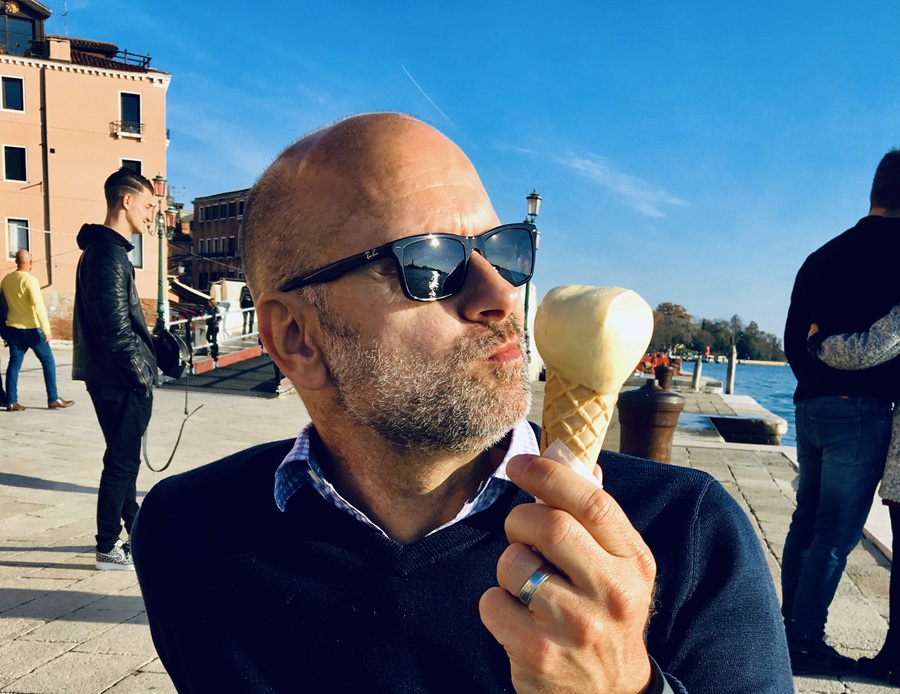What really happens after selling a business? Here’s my story of letting go, finding freedom, and building a new life by design.
I never started my company with the goal of selling it. In fact, for most of its life, the thought of letting go never even crossed my mind. I loved the work, loved the team, and loved the challenge of growing something from nothing.
But businesses, like people, have a lifecycle. My partners were older and started asking the hard questions: How does this end? What’s the plan? At first, my answer was simple: Why sell? We’re making money, we’re successful, I’m happy. Let’s just keep going.
Then reality hit me. At some point, it has to end. A business doesn’t run forever, and pretending it will is just self-delusion. So I began a new journey I hadn’t anticipated – preparing to scale myself out of the business.
Freedom > Money
When we started thinking seriously about an exit, one thing became crystal clear to me: I wasn’t going to stick around for an earn-out.
On paper, an earn-out can look appealing – more money dangled on the back end, a chance to “prove” the business continues to perform. But here’s the truth: I didn’t start my company for money. I started it for freedom.
The idea of selling my company only to turn around and ask permission to take a Friday off, submit expense reports, and work under someone else’s rules? No thanks. That would have been the exact opposite of why I became an entrepreneur in the first place.
For me, the real wealth was autonomy. The money just came along for the ride.
Culture by Design
If you ask most founders what makes their business valuable, they’ll point to revenue, margins, or growth rates. All important, of course. But for me, one of the things I was most proud of was our culture.
I’d spent years inside Fortune 500 companies as a consultant, walking into rooms where three out of four people clearly hated their jobs. The corporate dread was palpable. I swore I’d never build a company like that.
So I worked relentlessly to create a culture by design, not by default. We built a small but mighty team that genuinely enjoyed working together. Even though we were a remote company, we had camaraderie, trust, and a sense of fun.
That made the exit harder. Selling wasn’t just a financial decision – it meant handing over a group of people I cared about. I wanted to be sure they’d be treated well, that the company we’d built with intention wouldn’t get crushed under someone else’s bureaucracy.
Letting go of the numbers was easy. Letting go of the people was not.
The Letting Go
The funny thing about an exit is how quickly you become irrelevant.
At first, the transition period was busy – my inbox full, the team pinging me constantly with questions: Where do we keep this file? How do we handle that client? Who signs off on this contract? I was happy to answer, to ease them into the new reality.
But week by week, the questions slowed. Until, almost overnight, they stopped. No more pings. No more calls. No one needed me anymore.
At first, it felt liberating. After 20+ years of running a company, I could wake up at 10:30, pour a glass of wine, and call it a day if I wanted to. No pressure. No responsibility. No weight on my shoulders.
But that freedom carried a sting I hadn’t expected: the realization that I wasn’t important anymore. I fell into what so many founders warned me about but I hadn’t truly understood – the post-exit hole. When you’ve tied your identity to building, leading, and being “the guy” for decades, what happens when all of that is gone?
It’s not the money you miss. It’s the meaning.
Life After Exit
If I could do it over again, I’d have taken more time off. A real break. Not two months of wine-at-10:30 novelty, but a year on an island somewhere – time to reset, disconnect, and rediscover myself outside of business.
Instead, I slipped back into old habits. Within weeks, I was dabbling with new ideas, tinkering with projects, starting new ventures. It wasn’t because I had to – the pressure of payroll and revenue was gone. It was because building is what I know. It’s who I am.
The difference this time? I no longer needed to swing for the fences. Some of my new companies are profitable, others are loss leaders. But I enjoy them. I explore what interests me, experiment with AI, create projects that are fun and useful – without the crushing weight of “it has to work.”
I also realized something important: freedom without purpose feels hollow. The real challenge after an exit isn’t money management. It’s meaning management. What do you want your days to look like when you never have to work again?
That’s where I’ve landed. Less about chasing, more about choosing. Less about running a company, more about running my life with intent.
Life Today
These days, I’ve built a different kind of routine. My health has become my top priority. I train, eat well, and treat fitness like it’s my job – because in a way, it is. Longevity is the best investment I can make.
The travel bug I’ve always had is now fully unleashed. With London as our home base, Michelle and I can hop across Europe at will. A long weekend in Italy, a few days in Switzerland, a week in Crete – no guilt, no stress, no asking for permission. Technology makes staying connected easy, so being globally mobile isn’t a hurdle anymore. (That’s probably another blog entirely.)
I’ve also discovered passions I never had time for before. Fine art and collectibles have become both an indulgence and an investment – a mix of beauty and strategy that keeps me sharp and engaged.
In short: life is pretty darn good. Not perfect, not without its challenges, but designed with intent. And that’s exactly the point.
Reflections on Letting Go
Looking back, the exit wasn’t really about selling a company. It was about learning to let go – of control, of identity, of the belief that my worth was tied to the business I built.
The truth is, I’ll always be an entrepreneur. I’ll always build, tinker, and create. But I no longer feel chained to it. My days are mine to design now, whether that’s a workout, a trip, or simply sitting in front of a painting I love.
What I’ve learned is this: the goal was never money. It was freedom. And the real work starts after you achieve it – figuring out how to live with purpose when you no longer have to do anything at all.
I scaled myself out of the business. What I found on the other side wasn’t emptiness. It was the space to build a life that feels like mine.





